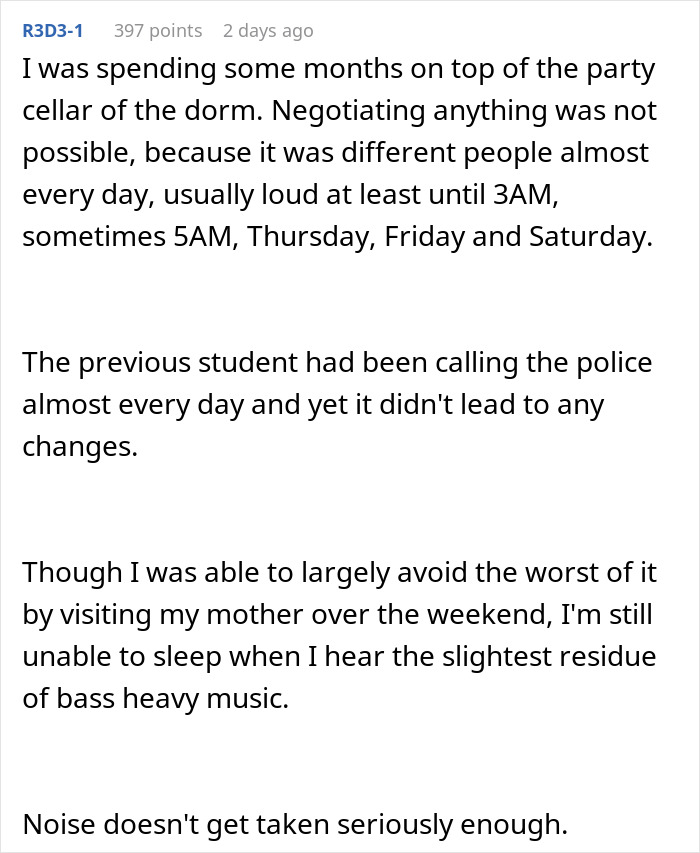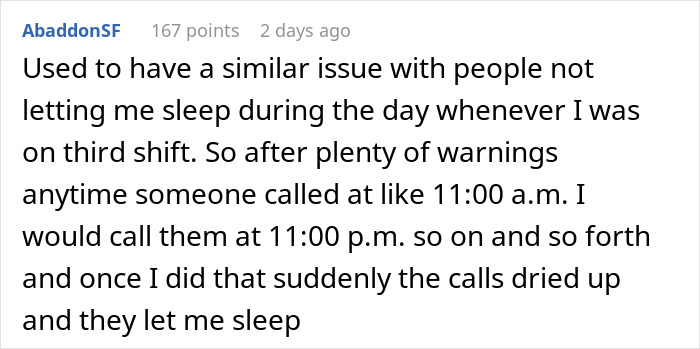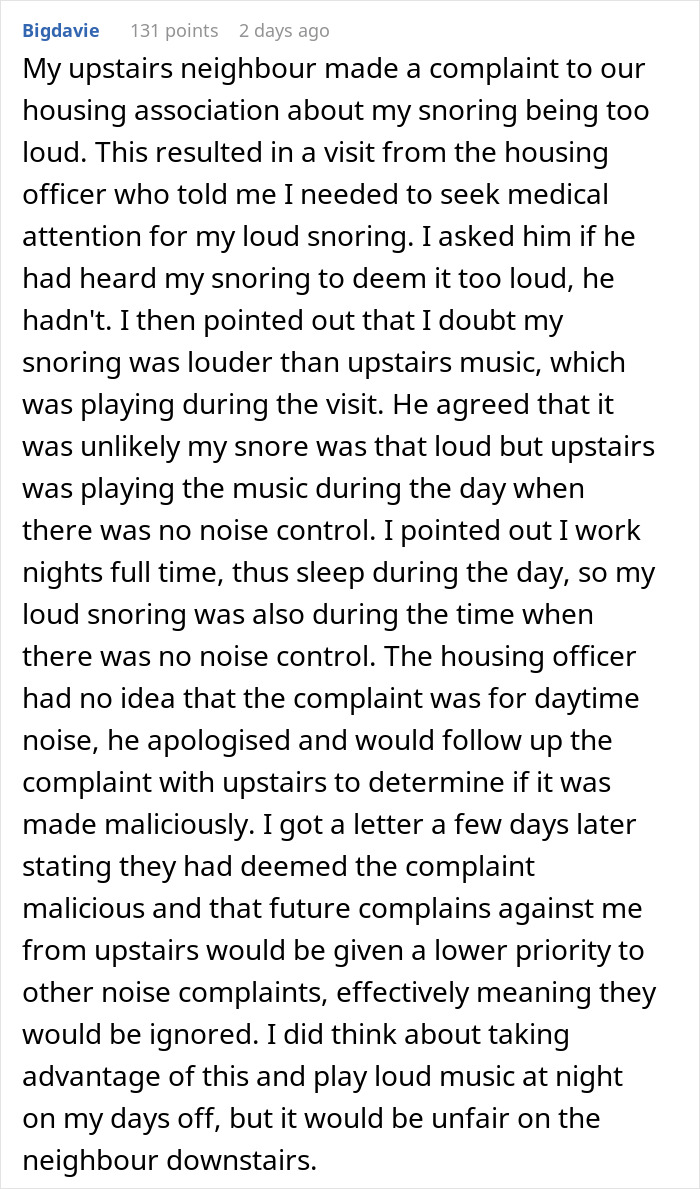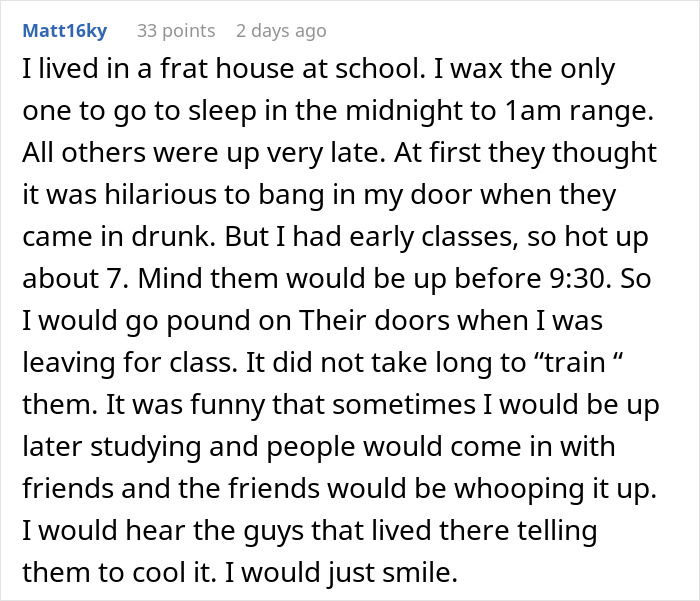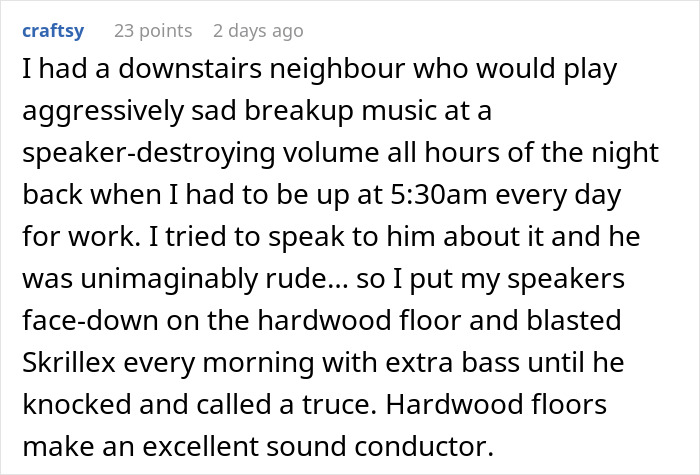Adults should be getting 7-9 hours of sleep a night. And experts warn that chronic sleep deprivation can have a massive impact on your mental and physical health. Yet according to Harvard, more than half of college students are getting less than the bare minimum of shut-eye. Some are studying, some are working, and others are using the night hours to party.
For one student, it was none of the above. Instead, their noisy roommates were to blame. The sleep-deprived woman shared how she has to stick to a consistent bedtime because of her insomnia. But living in a college dorm made it near impossible. The woman’s roommates refused to shut up during shut-eye time. Eventually, the student decided to turn the tables and give them a taste of their own medicine in a sleepless but satisfying act of malicious compliance.
Struggling to fall asleep is a nightmare for many people, with around a third of Americans suffering from bouts of insomnia

Image credits: cottonbro studio / Pexels (not the actual photo)
Following a strict sleep routine helps this student, but her noisy roommates couldn’t care less
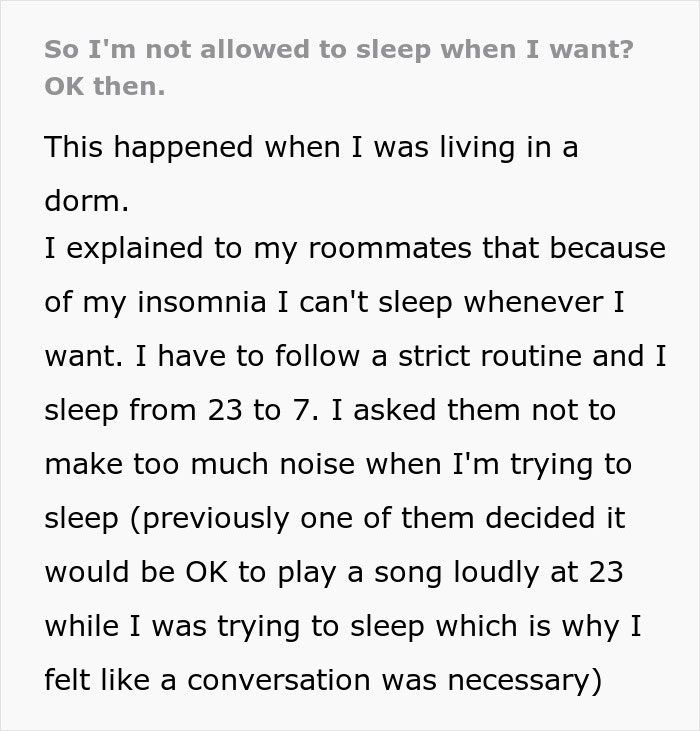
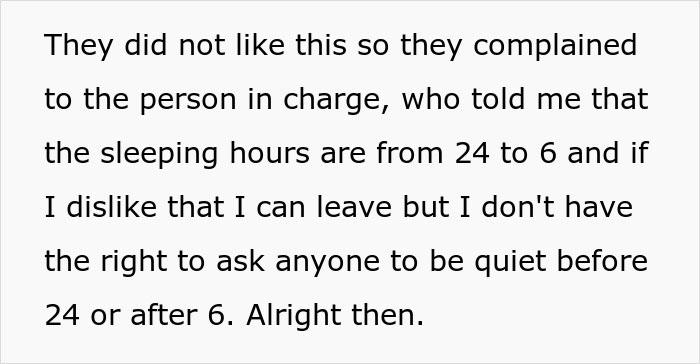
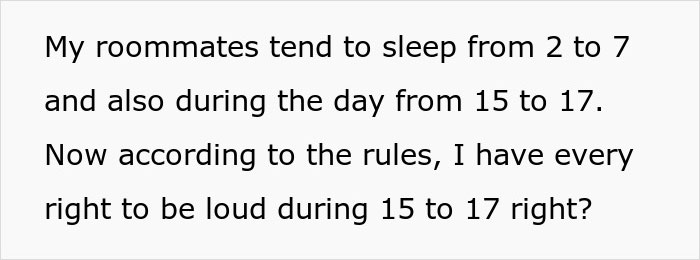
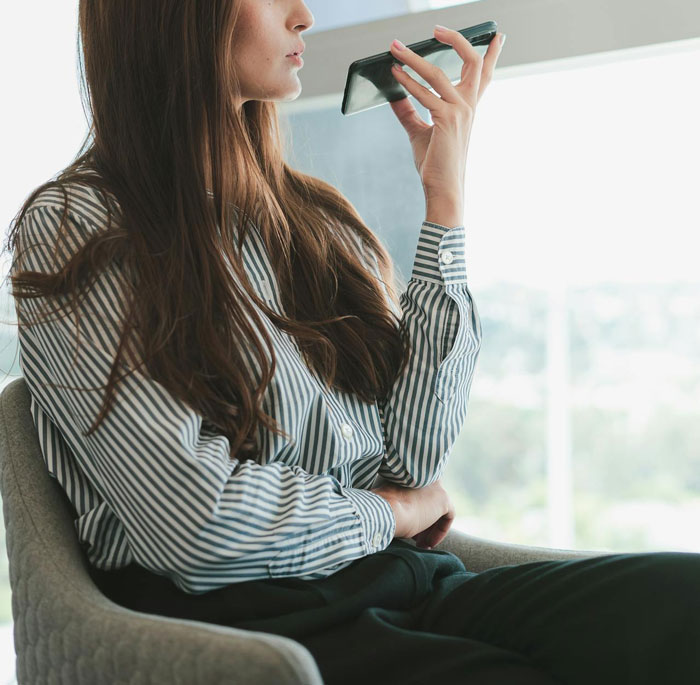
Image credits: Los Muertos Crew / Pexels (not the actual photo)
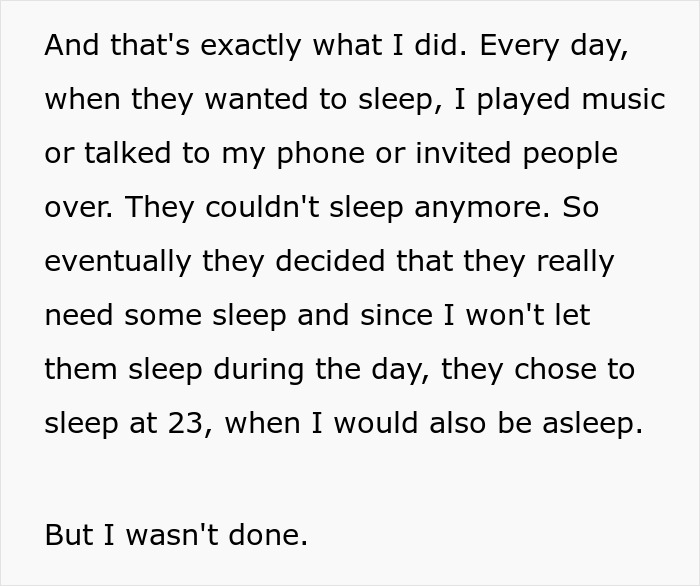
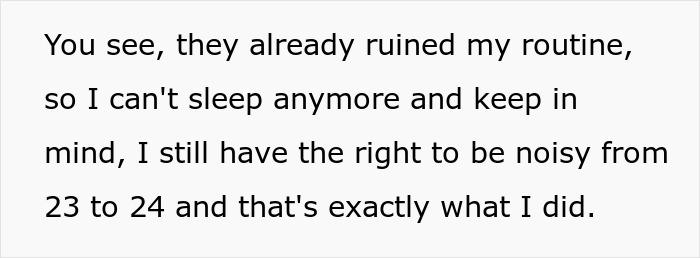

Sleep deprivation can have serious repercussions
The American Academy of Sleep Medicine (AASM) reports that around a third of adults have brief bouts of insomnia, while 15%-20% have short-term insomnia that lasts less than 3 months. For 10% of the population, it’s so bad that they struggle to sleep at least 3 times per week for at least 3 months, and are classified as having a chronic insomnia disorder.
The Academy adds that loss of productivity due to chronic insomnia costs the U.S. economy $63 billion annually. And the Centers For Disease Control has warned that sleep deprivation can have the same effect as being intoxicated. The AASM reports that driving while drowsy causes an average of 328,000 motor vehicle accidents every year, in America alone.
Apart from the obvious feelings of fatigue, not getting enough sleep can lead to irritability and a short temper; mood changes; trouble coping with stress; difficulty focusing, concentrating, and remembering things (crucially important for students); and what’s known as brain fog. “College students who prioritize sleep are likely to see an improvement in their academic performance,” notes Harvard Summer School.
Harvard’s Dr. Edward Pace-Schott is a sleep expert and says sleep plays an important part in helping us absorb information and remember things. “In any sort of experimental setting, study results show better performance if you learn material and then sleep on it, instead of remaining awake,” said Pace-Schott. “So there’s lots and lots of evidence now indicating that sleep promotes memory strengthening and memory consolidation.”
Anxiety, stress, depression, genetics, a change in environment, caffeine, and even age can all contribute to insomnia. But a 2019 survey found that television is a primary culprit of sleep loss. 88% of people polled said they lost sleep “to watch multiple episodes of a TV or streaming series,” while 72% percent of adults ages 18 to 34 prioritized playing video games over sleeping.
Experts say having a sleep routine is key to getting a good night’s rest. Pace-Schott suggests limiting caffeine and alcohol before bedtime, avoiding electronic screens within an hour of going to sleep, engaging in daily exercise, but avoiding intense exercise within two hours of bedtime, and being consistent about what time you wake up and go to sleep.
But sometimes, as in the case of the student, it’s beyond your control. “College students living in dorms or other communal settings may find their sleep disturbed by circumstances beyond their control: a poor-quality mattress, inability to control the temperature of your bedroom, or noisy roommates, for example,” said Pace-Schott.
“I’m not a terribly nice person”: the student gave some more details in an update
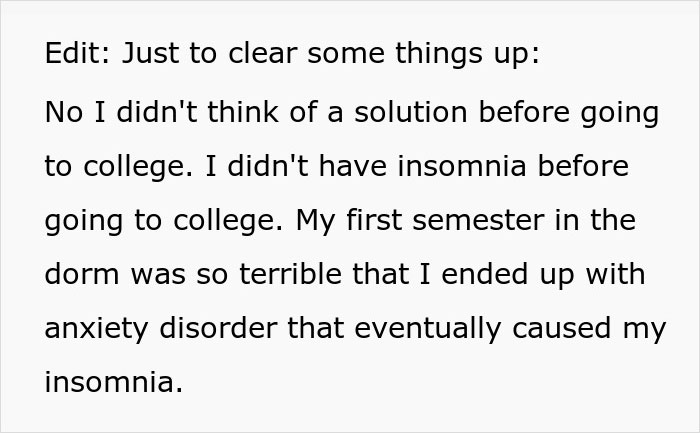

Image credits: Liza Summer / Pexels (not the actual photo)
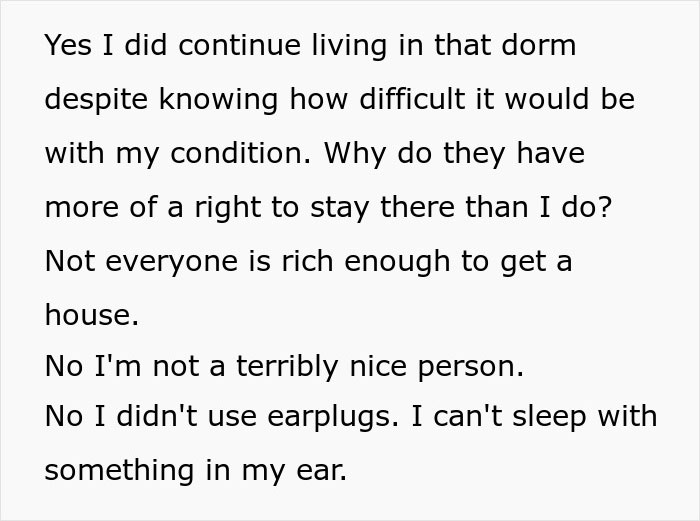
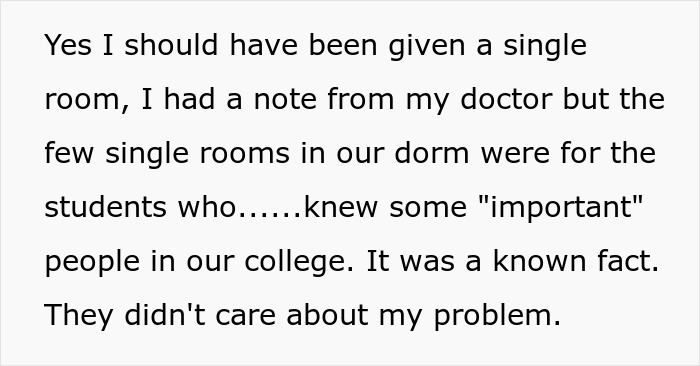
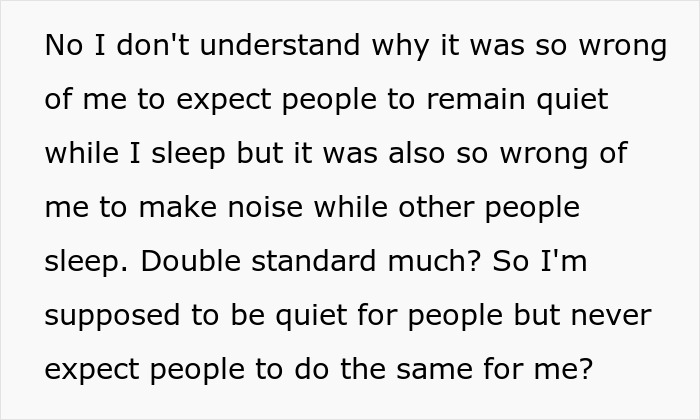
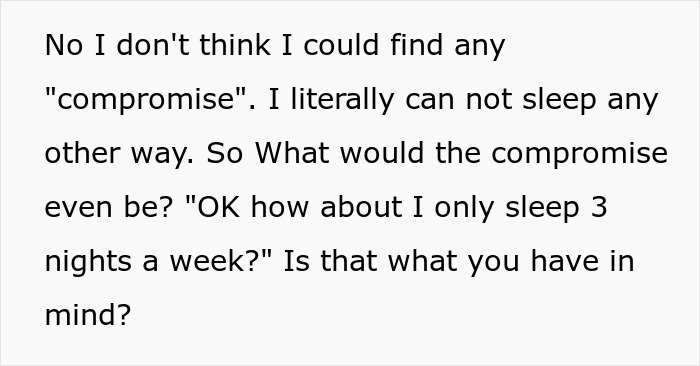
Image credits: Loonathik
“Always follow the rules”: the student stood firm when some netizens questioned her actions
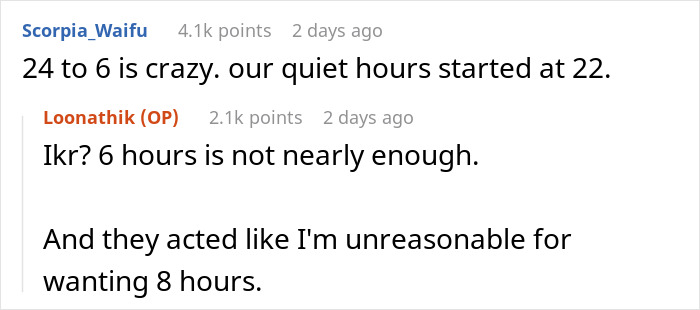
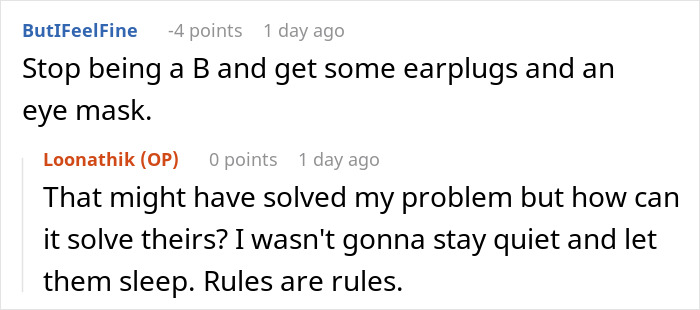
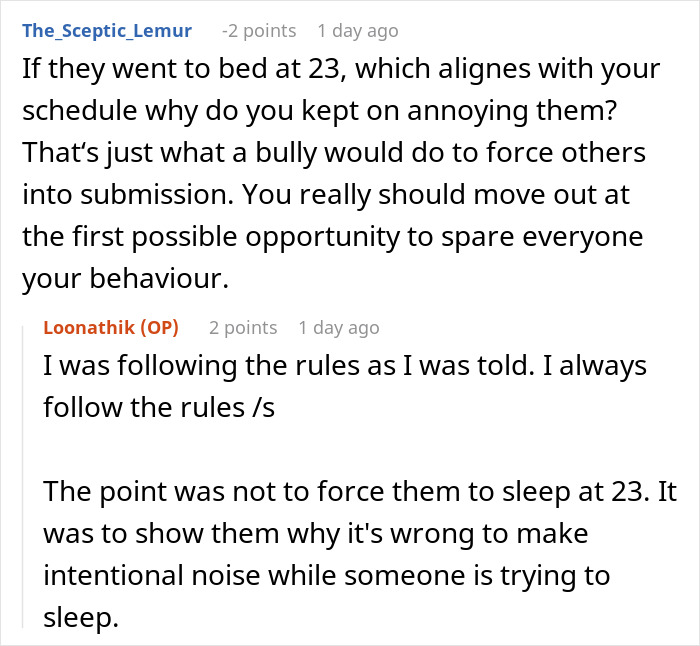
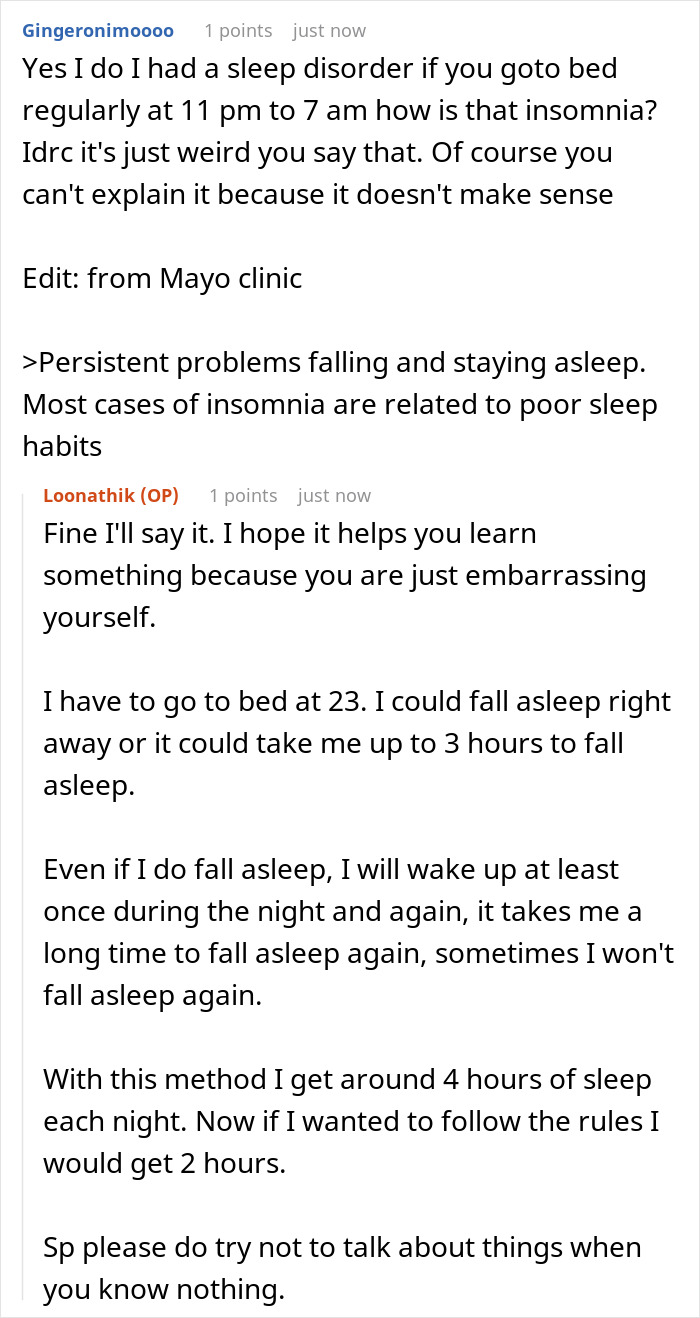
Some found the act of “malicious compliance with a dash of petty revenge” quite satisfying











“Noise doesn’t get taken seriously enough”: netizens shared their own similar stories
